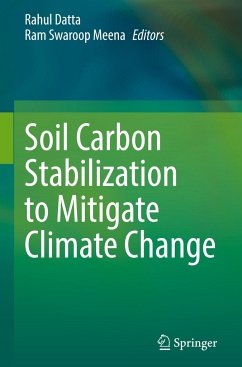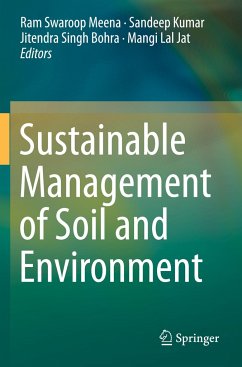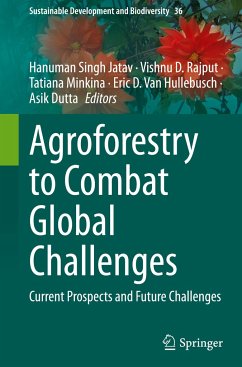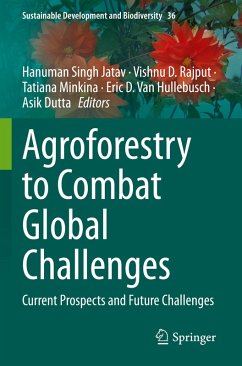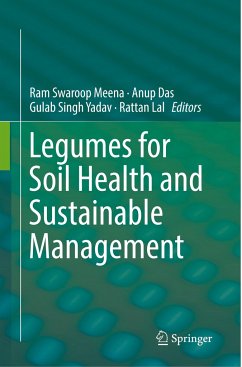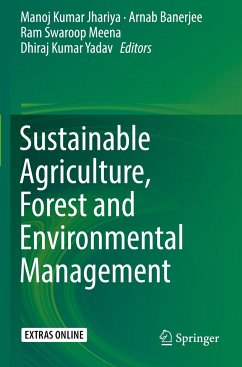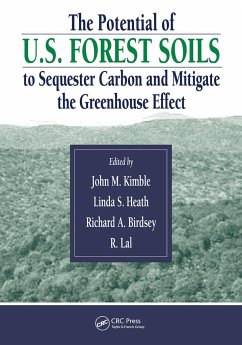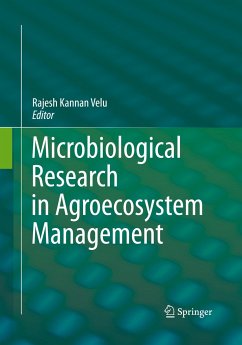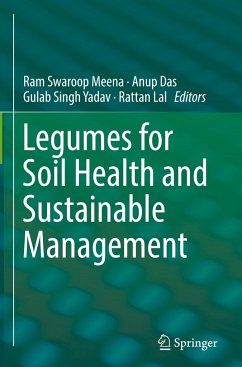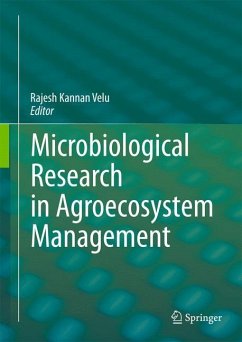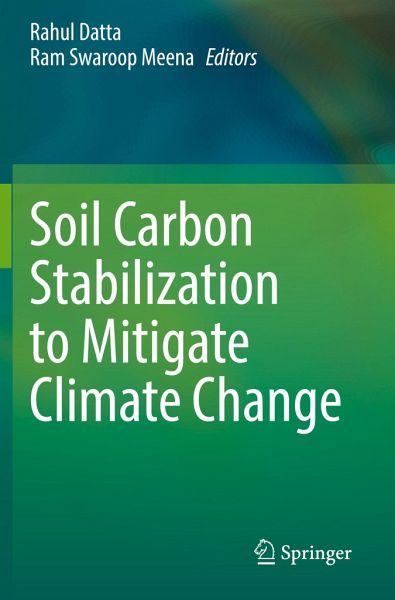
Soil Carbon Stabilization to Mitigate Climate Change
Versandkostenfrei!
Versandfertig in 6-10 Tagen
189,99 €
inkl. MwSt.

PAYBACK Punkte
95 °P sammeln!
Carbon stabilization involves to capturing carbon from the atmosphere and fix it in the forms soil organic carbon stock for a long period of time, it will be present to escape as a greenhouse gas in the form of carbon dioxide. Soil carbon storage is an important ecosystem service, resulting from interactions of several ecological processes. This process is primarily mediated by plants through photosynthesis, with carbon stored in the form of soil organic carbon. Soil carbon levels have reduced over decades of conversion of pristine ecosystems into agriculture landscape, which now offers the op...
Carbon stabilization involves to capturing carbon from the atmosphere and fix it in the forms soil organic carbon stock for a long period of time, it will be present to escape as a greenhouse gas in the form of carbon dioxide. Soil carbon storage is an important ecosystem service, resulting from interactions of several ecological processes. This process is primarily mediated by plants through photosynthesis, with carbon stored in the form of soil organic carbon. Soil carbon levels have reduced over decades of conversion of pristine ecosystems into agriculture landscape, which now offers the opportunity to store carbon from air into the soil. Carbon stabilization into the agricultural soils is a novel approach of research and offers promising reduction in the atmospheric carbon dioxide levels. This book brings together all aspects of soil carbon sequestration and stabilization, with a special focus on diversity of microorganisms and management practices of soilin agricultural systems. It discusses the role of ecosystem functioning, recent and future prospects, soil microbial ecological studies, rhizosphere microflora, and organic matter in soil carbon stabilization. It also explores carbon transformation in soil, biological management and its genetics, microbial transformation of soil carbon, plant growth promoting rhizobacteria (PGPRs), and their role in sustainable agriculture. The book offers a spectrum of ideas of new technological inventions and fundamentals of soil sustainability. It will be suitable for teachers, researchers, and policymakers, undergraduate and graduate students of soil science, soil microbiology, agronomy, ecology, and environmental sciences





